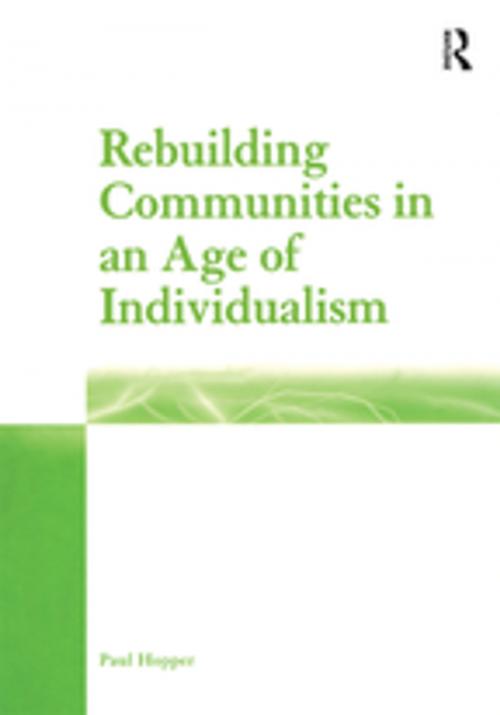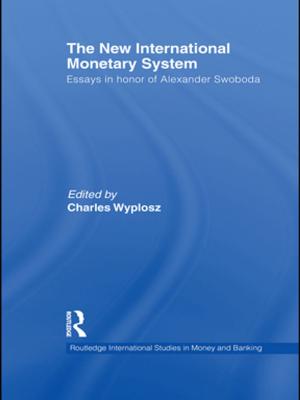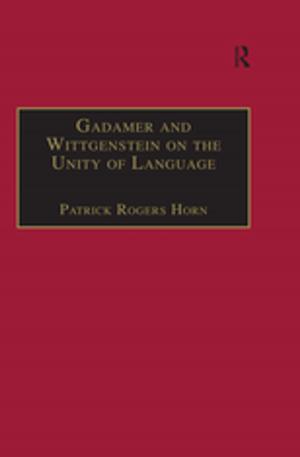Rebuilding Communities in an Age of Individualism
Nonfiction, Social & Cultural Studies, Social Science, Sociology| Author: | Paul Hopper | ISBN: | 9781351906258 |
| Publisher: | Taylor and Francis | Publication: | July 5, 2017 |
| Imprint: | Routledge | Language: | English |
| Author: | Paul Hopper |
| ISBN: | 9781351906258 |
| Publisher: | Taylor and Francis |
| Publication: | July 5, 2017 |
| Imprint: | Routledge |
| Language: | English |
As modern societies become increasingly individualistic, this fascinating book examines how we can maintain and revive local communities and community life. It demonstrates how the major developments and processes of our time, notably globalization, post-industrialism and de-traditionalization, contribute to this individualism to the detriment of community life. The author examines how community is a necessary and important component of human life and discusses possible ways in which to arrest its decline. In this regard, strategies geared to fostering trust and social capital are outlined as the basis for reinvigorating community life. The volume provides a coherent and distinct analysis of community as well as offering concrete policy prescriptions to counter the excessive individualism of our times. In both the nature and scope of its analysis, it offers a unique contribution to an extremely important issue in the contemporary period, one that increasingly preoccupies politicians, academics and ordinary citizens.
As modern societies become increasingly individualistic, this fascinating book examines how we can maintain and revive local communities and community life. It demonstrates how the major developments and processes of our time, notably globalization, post-industrialism and de-traditionalization, contribute to this individualism to the detriment of community life. The author examines how community is a necessary and important component of human life and discusses possible ways in which to arrest its decline. In this regard, strategies geared to fostering trust and social capital are outlined as the basis for reinvigorating community life. The volume provides a coherent and distinct analysis of community as well as offering concrete policy prescriptions to counter the excessive individualism of our times. In both the nature and scope of its analysis, it offers a unique contribution to an extremely important issue in the contemporary period, one that increasingly preoccupies politicians, academics and ordinary citizens.















